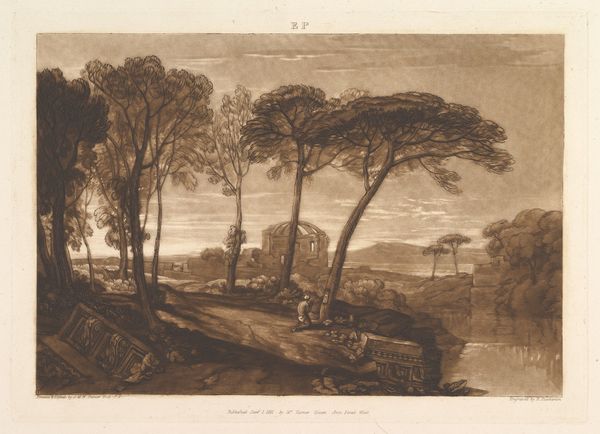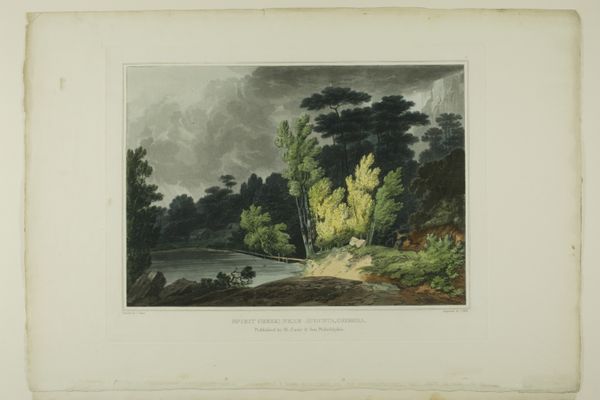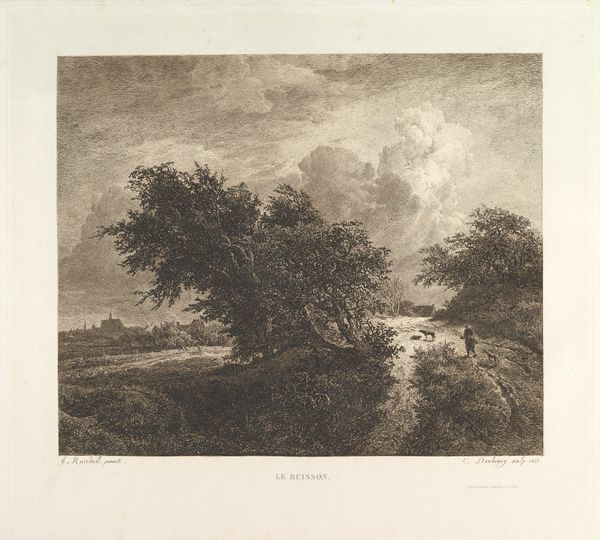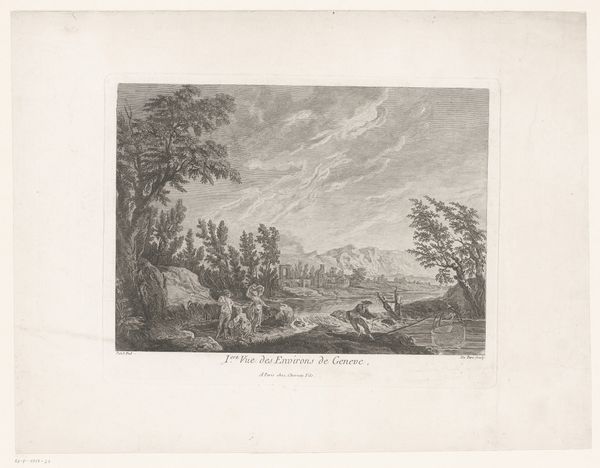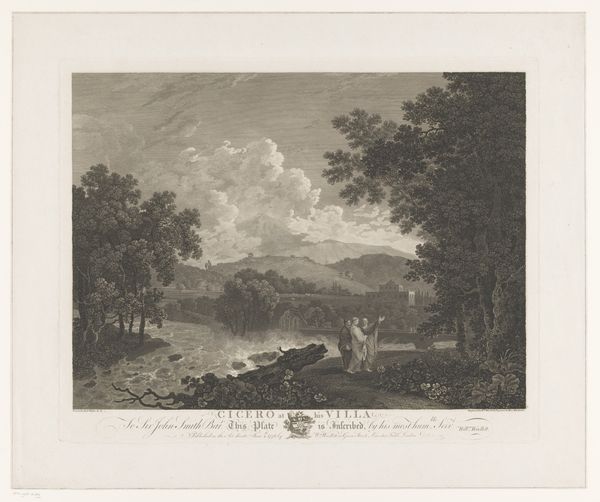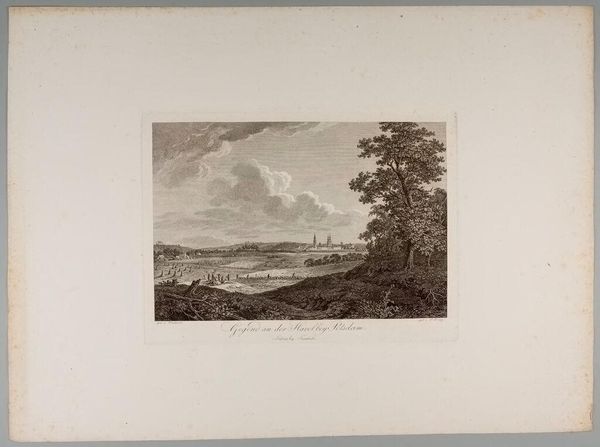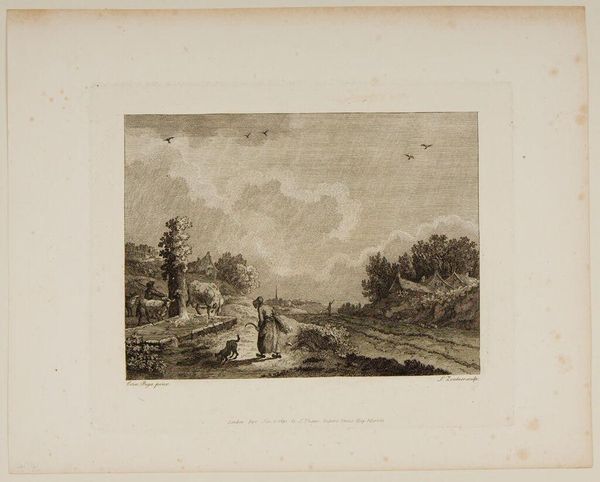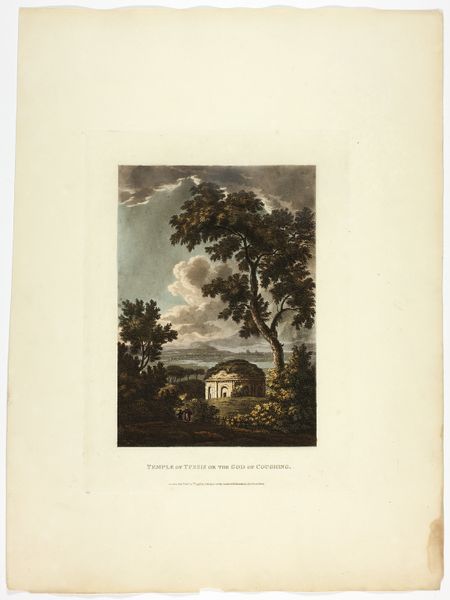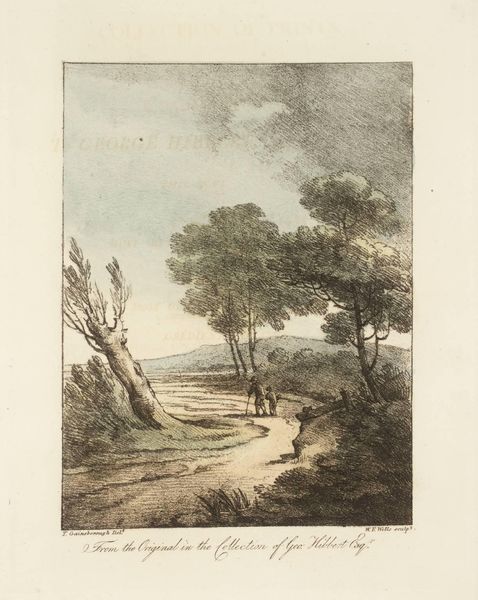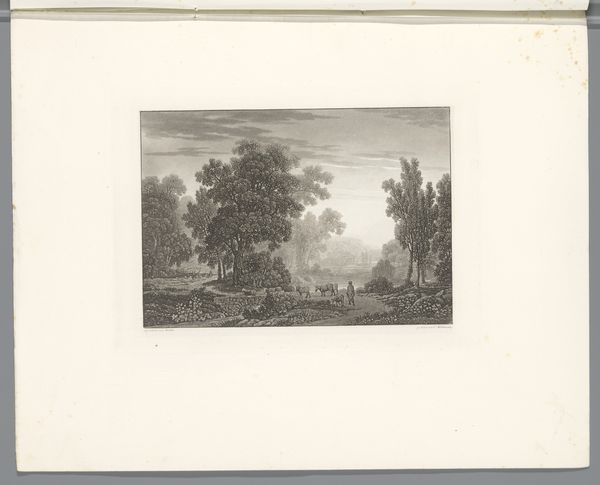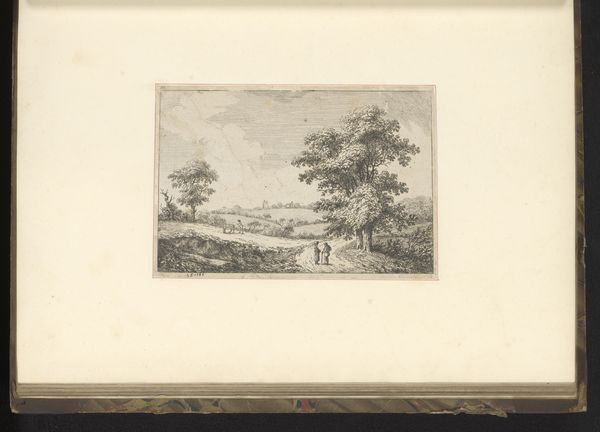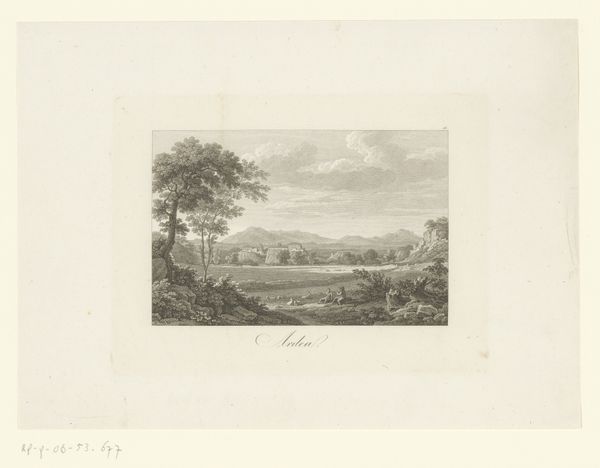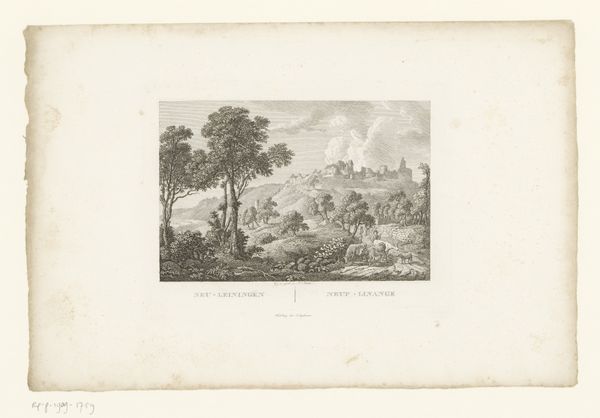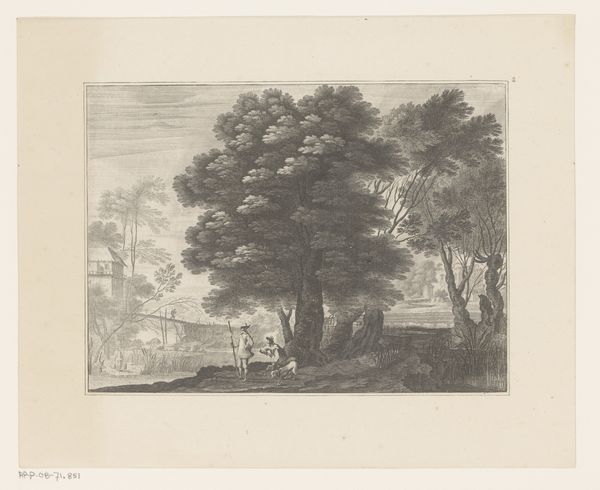
Burning of Savannah, plate four of the second number of Picturesque Views of American Scenery 1819 - 1821
0:00
0:00
drawing, print, etching, paper
#
drawing
# print
#
etching
#
landscape
#
paper
#
romanticism
#
united-states
#
cityscape
Dimensions: 253 × 350 mm (image); 301 × 384 mm (plate); 381 × 562 mm (sheet)
Copyright: Public Domain
This print of "Burning of Savannah" was made by John Hill, an aquatint engraver, as part of a series called "Picturesque Views of American Scenery." Aquatint is an intaglio printmaking technique, like etching, used to create tonal effects. To make it, you dust a copper plate with powdered resin, then heat it, so the resin adheres. This creates a porous, acid-resistant ground. The longer the plate is exposed to acid, the deeper the etch, and the darker that area will print. It's a labor-intensive method, demanding skill and time. Hill then likely added line engraving to sharpen the details. This image presents an important inflection point in American history, and the labor-intensive printmaking process stands in stark contrast to the destructive event depicted. The scene becomes a commodity, part of a series, made to be collected and consumed. This work asks us to consider how images participate in shaping perceptions of conflict. By understanding the means of production, we can consider the social context in which this image was created and consumed, challenging any distinctions between the fine arts, print-making, and political commentary.
Comments
No comments
Be the first to comment and join the conversation on the ultimate creative platform.
